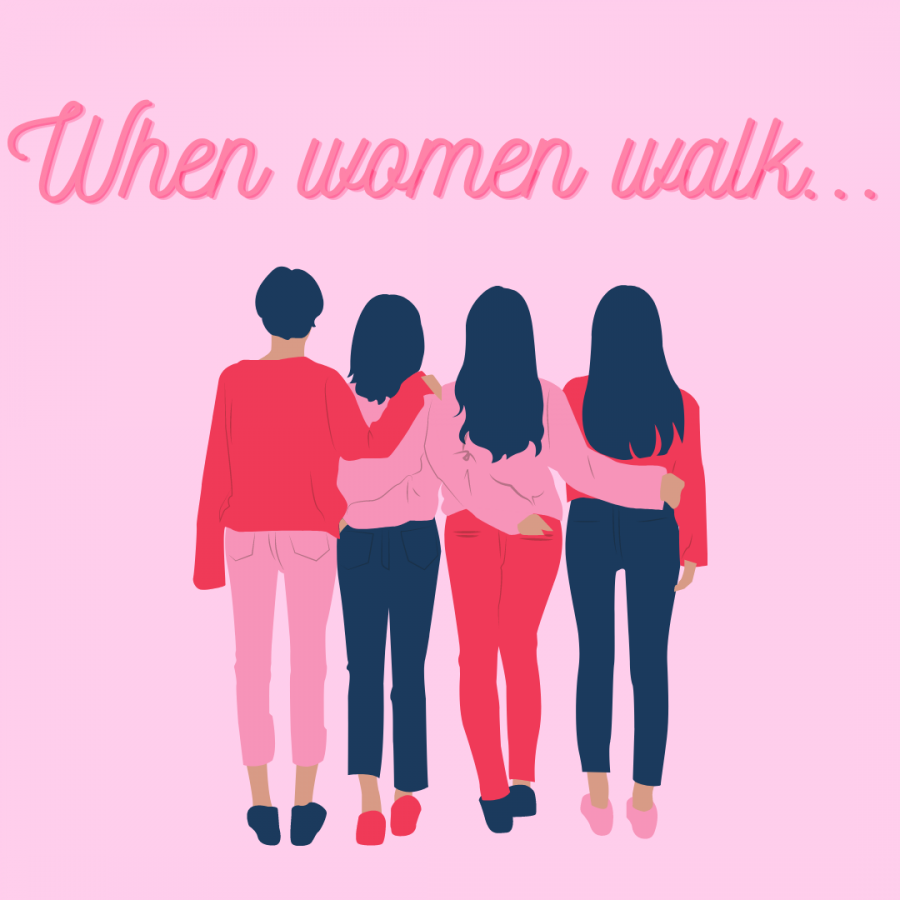“Wear bright clothes,” “share your location with friends and family” and “call someone on your way home” are all instructions commonly shared with young women to protect themselves from men as they venture into the world.
These instructions, however, failed Sarah Everard, a 33-year-old woman from London, was murdered by police officer Wayne Couzens on March 3, 2021 while walking home from a friend’s house, and her body was found nearly 50 miles away in Kent a week later.
The very institutions put in place to protect Everard had failed not only her, but 81 percent of women who have also been sexually assaulted and harassed. Everard’s death has not only sparked outrage among women throughout the world, but also has incited ideas of reform necessary for society.
One of the biggest calls to action needed is a change in the way that men are taught to, and subsequently do, behave. Men often face little to no repercussions for their actions, with only 0.46 percent of sexual assaults ending in incarceration.
Women, on the other hand, are often forced to grow up far too young and be educated on staying protected from unwanted male attention. Senior Emerson Peters remembers taking precautions as early as elementary school. “I think I always was taught to be cautious of my surroundings and of men. Even when I was little, the stereotype of a man following you or driving a van always had me cautious when I was in public,” she shared.
For women, this is a common and shared experience – but for men, not so much. Junior Will Fairman admits to not recognizing how conscious women must be from a young age until he got older. “I am aware of my surroundings in general, but never have had to worry specifically about men,” he explained. “It wasn’t until I heard stories from female friends that I realized the extra precautions they take.”
In other words, an everyday phenomenon for women rarely ever crosses most men’s minds – but it is long past time that this changes. Starting from a young age, boys need to be educated and engaged in conversations about how they can eliminate these assaults, rather than teaching young women about how they can prevent it from happening to them.
Research has already shown that parents have more conversations with their daughters on how to prevent sexual assault than their sons, something that seems counterintuitive if women are the ones suffering from the harassment. The burden falls upon women to protect themselves.
Junior Aayusha Adhikari has always found this process flawed. “I never understood why women were taught to protect themselves from sexual assault as if it is their fault,” she lamented. “When someone is attacked or harmed in general, they are not the ones who face the blame. It just shows the blatant sexism in society.”
Further studies show that among numerous men there is a widespread confusion over the fundamental concepts of consent and sexual assault – only adding fuel to the fire that is harming women throughout the world.
One of the seemingly most effective ways to combat this issue: address the problem at its source. Just as children are often taught fundamental concepts such as tying their shoes, going to the bathroom or the alphabet in their early formative years, introducing the conversation around respecting women to young boys is just as vital – especially when a significant portion of a man’s reasoning for sexual assault stems from the toxic masculinity that circulates and is promoted in society.
This idea of toxic masculinity not only serves as a source for sexual assault, but also a scapegoat for men. “A lot of women obviously deal with sexual assault, so twisting the generality to “not all men” makes them feel as if their retaliation or battle against assaulters is unheard,” Peters voiced. “Toxic masculinity culture is definitely real and affects a large part of the male population.”
As more and more women come forward their own stories and experiences with sexual assault, it is evident that women will no longer accept the abuse that they have been facing at the hands of men for nearly the entirety of history – nor should they have to.
Rather than placing the blame on women for their assaults, society needs to address the problem and provide a solution: educating young boys rather than lecturing young boys. It is time to bring forth change to make the world safer for women to do activities as simple as walking.








